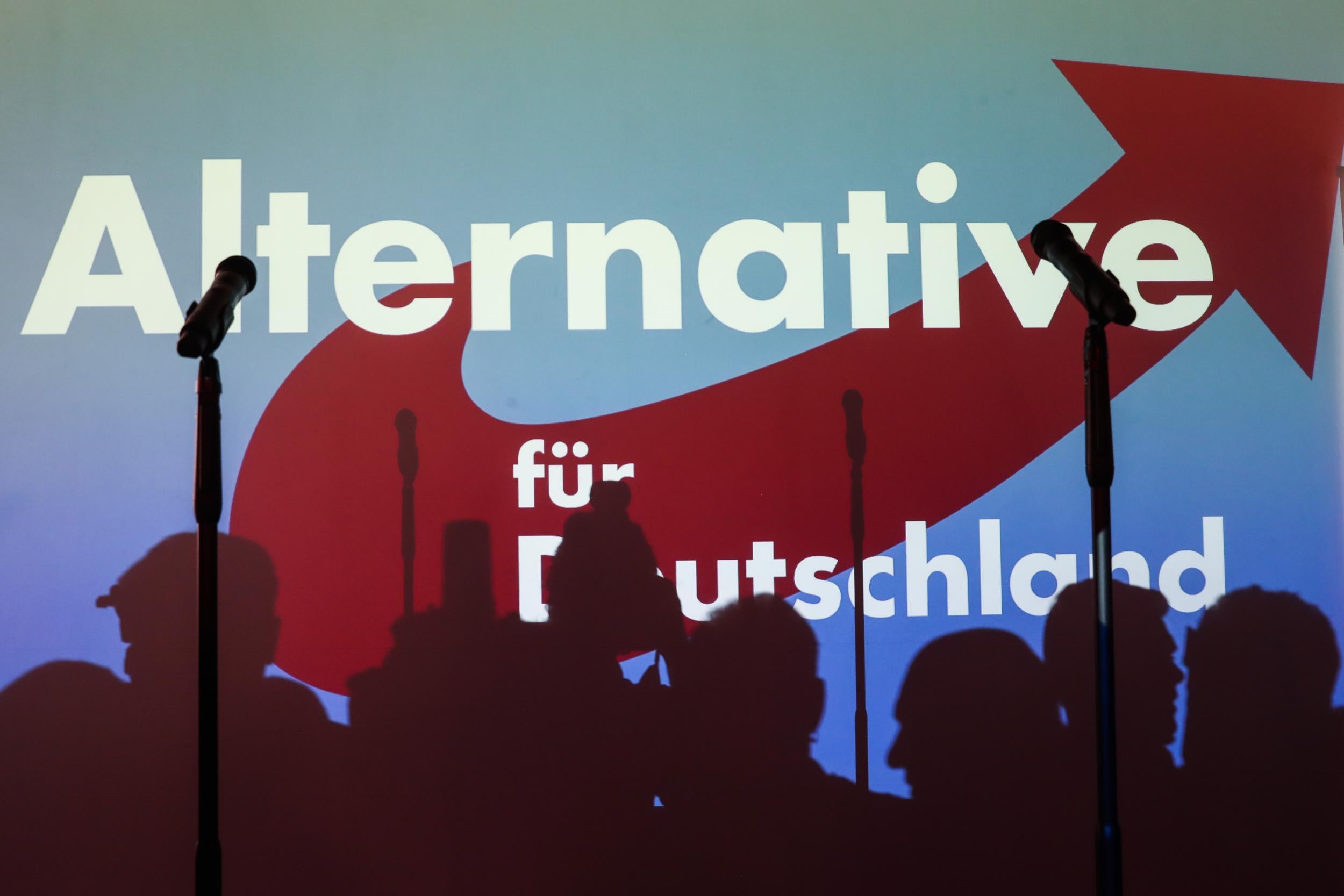German elections 2017 - live updates: Far-right enters Bundestag for first time in half a century
Follow the latest updates live

Your support helps us to tell the story
From reproductive rights to climate change to Big Tech, The Independent is on the ground when the story is developing. Whether it's investigating the financials of Elon Musk's pro-Trump PAC or producing our latest documentary, 'The A Word', which shines a light on the American women fighting for reproductive rights, we know how important it is to parse out the facts from the messaging.
At such a critical moment in US history, we need reporters on the ground. Your donation allows us to keep sending journalists to speak to both sides of the story.
The Independent is trusted by Americans across the entire political spectrum. And unlike many other quality news outlets, we choose not to lock Americans out of our reporting and analysis with paywalls. We believe quality journalism should be available to everyone, paid for by those who can afford it.
Your support makes all the difference.Initial results in the German elections show the country’s far-right winning seats in the Bundestag for the first time in half a century.
The populist Alternative fur Deutschland (AfD) comfortably took third place in the election, while the centre-left SPD crashed to a historically low result.
Angela Merkel is expected to be easily returned as Chancellor for the third election straight with a predicted 32.5 per cent over the vote, while small parties were up across the board.
The exact shape Ms Merkel's government will take after the election is uncertain, with an array of coalition options involving the SPD, the centre-right liberal FPD, or even the Greens, who sometimes cooperate with Ms Merkel’s CDU party at the state level.
Ahead of the election an average of major pollsters showed the far-right AfD on 13 per cent of the vote, ahead of left-wing Die Linke (11 per cent) the FDP, and the Greens (eight per cent). The results would leave the AfD, which currently has MPs in 13 out of the country’s 16 local state assemblies, with around 70 seats in the national parliament.
There had been speculation that the AfD could do even better than polls suggest, because of Germans keeping their support for the party secret. One survey commissioned by the tabloid newspaper Blid suggested that 40 per cent of Germans believe the party will do better than expected.
The main points from the exit poll:
• The exit poll, if accurate, show the centre-left SPD getting a historically low share of the vote.
• The AfD is the first far right party to enter the Bundestag for half a century.
• All smaller parties are up on the last election, across the spectrum
• The liberal FDP is back in parliament after crashing out in 2013
• If the grand coalition continued, the AfD would be the largest opposition party
The far-right has been in the Bundestag only once since the Second World War.
Deutsche Rechtspartei, or German Right Party, a hard right national conservative outfit, attracted former Nazis and won five seats in the 1949 federal election. It lost those seats at the next election.
Other than the AfD, the most notorious contemporary German far right party is the National Democratic Party of Germany (NPD).
The NPD has previously won scattered representation in local state parliaments but has failed to ever win any seats in the Bundestag.
Here's The Independent's in-depth write-up of the election results, with more detail still coming in
The SPD leader Schulz told supporters said he will not be going back into coalition with Angela Merkel – that means the CDU are likely to form a coalition with the liberals and the Greens, the so called "Jamaica Coalition" because the colour of the parties matches the countries' flags.
Such a coalition has not been formed at German national level before – though it does sometimes occur in Germany's state parliaments.
Alternatively the CDU could try and form a minority government, though Merkel is thought to favour the Jamaica option.
Angela Mekel has now addressed CDU supporters following the exit poll, mentioning 'illicit migration' in her speech in an apparent nod to the AfD's priorities.
She told assembled CDU supporters:
"We got where we wanted to be, we wanted to be the strongest power. It is down to us to form a government, and against us, no government can be formed.
"After 12 years of being responsible for the government, the result we had today is really not something you can take for granted. Naturally, there's a challenge facing us for the future, and that is that the AfD has made it into parliament.
"We will have to win back those who voted for the AfD by solving their problems, by taking on board their concerns – their fears in some cases – but also by demonstrating good policymaking.
"In recent months we have fought for a Germany that we want to live in well, and now we need to set the course to ensure that in five and ten years' time it's still the case."
↵One big problem for the SPD: their voters are ageing, and not being replaced
Here's how the seats are likely to be divided up in the next German Bundestag:
CDU 218
SPD 138
Left 58
Greens 60
FDP 69
AfD 88
Alexander Garland, the lead candidate for the AfD, has been speaking.
"The government, whatever it will look like, should get ready for tough times. We'll chase them. We'll take back our country and our people," he told supporters.


Join our commenting forum
Join thought-provoking conversations, follow other Independent readers and see their replies
Comments